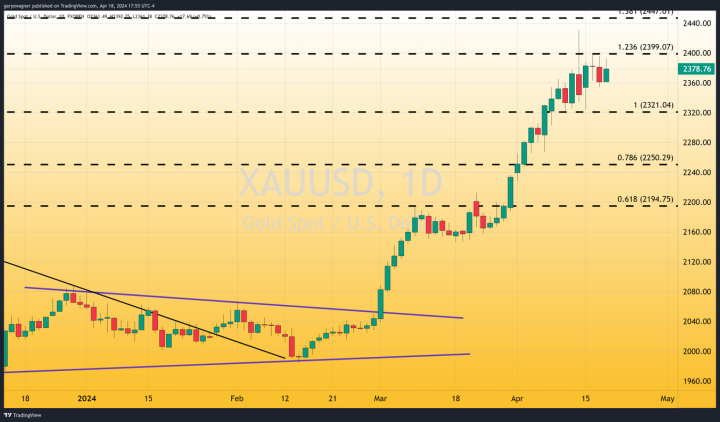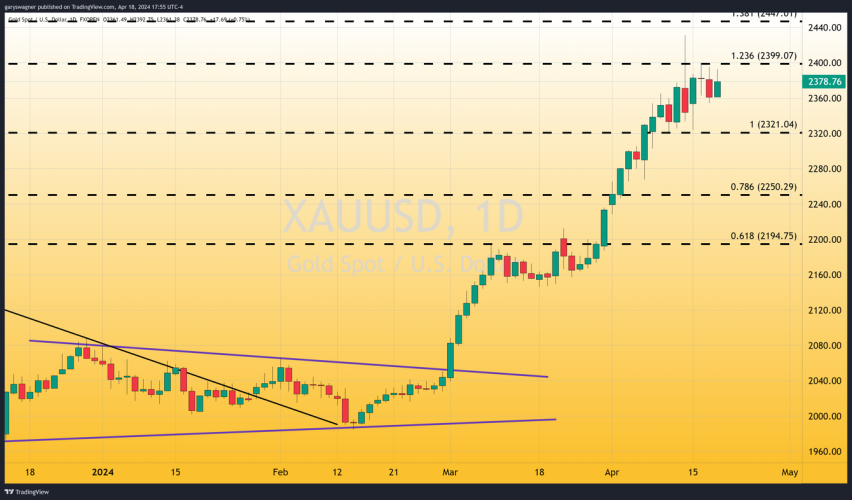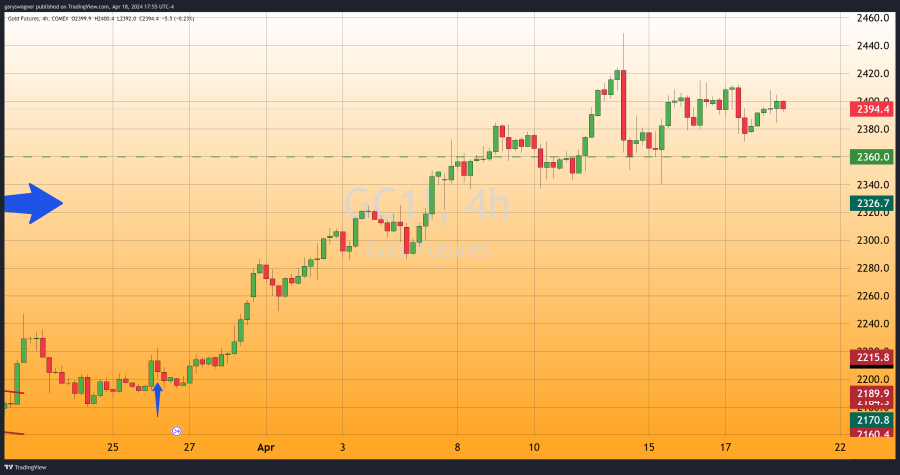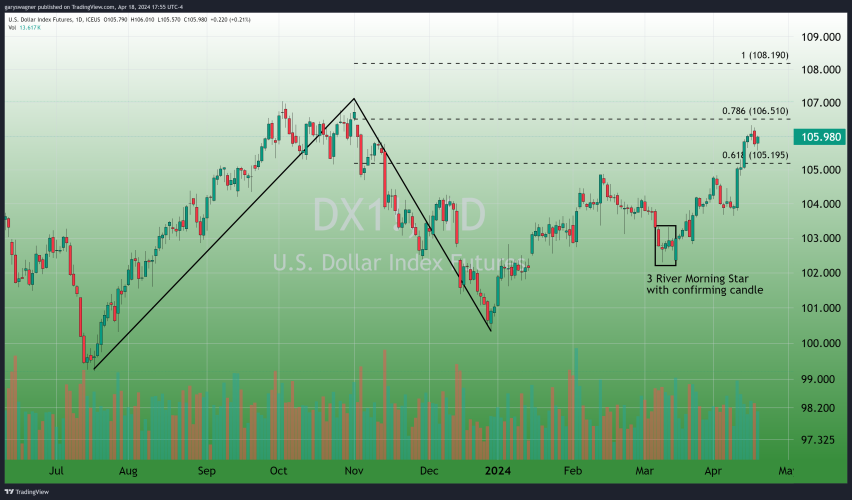


As of 5:30 PM EDT, gold futures for the most active April 2024 contract were fixed at $2,394.40, up $17.80 or 0.75%.
Spot gold also rallied, currently trading at $2,378.76 after gaining $17.69 or 0.75% on the day.

The precious metal managed to overcome headwinds from a stronger U.S. dollar, which gained 0.21% to push the dollar index to 105.99.

The recent upswing in gold prices, including today's moderately higher settlement, can be partially attributed to the safe-haven appeal of the yellow metal. Persistent geopolitical tensions in the Middle East are at the forefront of investors' minds, adding to bullish market sentiment. Despite robust U.S. economic data that reduces prospects of near-term interest rate cuts, gold is finding support.
The escalating conflict between Iran and Israel is a key driver of haven demand. Israel has warned it will retaliate against a barrage of attacks by Iran, rebuffing calls for restraint from the U.S. and other Western nations. On Saturday, Iran unsuccessfully launched over 300 drones and missiles into Israel in a massive strike, in retaliation for an alleged Israeli attack on an Iranian embassy in Syria. Without assistance from a coalition including the U.S, Britain, France and Jordan, the damage could have been devastating.
Another major bullish factor is continued central bank buying as central banks globally add to their gold reserves, viewing the metal as a prudent safe-haven asset.
Gold's gains are occurring despite data showing weekly U.S. jobless claims remained at low levels last week, indicating a tight labor market. Strong economic figures and hawkish Fed rhetoric have prompted investors to dramatically rethink chances of near-term rate cuts.
According to the CME's FedWatch tool, there is a zero chance of a rate cut in May, and a 1.7% chance of a rate hike. Furthermore, the is only a 18.9%% implied probability of a rate cut, and a 1.4% chance that the Fed will hike rates at the June FOMC meeting.
Fed Chair Jerome Powell said at an event in Washington that "recent data have clearly not given us greater confidence" on inflation, suggesting rates may need to remain elevated for longer. He noted that higher inflation "may necessitate maintaining current interest rate levels for an extended period."
While the economic backdrop seems unfavorable, gold continues drawing safe-haven bids amid heightened geopolitical risks and central bank buying. For now, those factors are overshadowing tighter Fed policy expectations.
Gary S. Wagner
